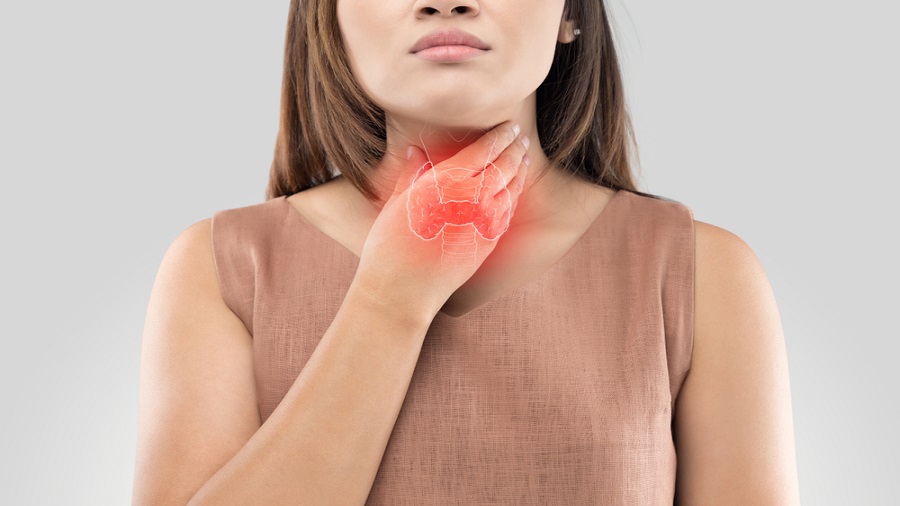Many functions of our body such as its growth, sexual maturity, digestion, heart rate and replenishment of skin cells and bones are affected by the concentration of thyroid hormones in our bloodstream. These biochemicals are produced by a tiny butterfly-shaped gland in the front of our neck called the thyroid gland. It then circulates through the body. A normal thyroid cannot be seen or felt. It just functions innocuously, silently and efficiently.
Hypothyroidism occurs in 11 per cent of the Indian population, more in women than men. It may be because the gland is absent from birth. In that case, the baby is lethargic, constipated, has a protruding tongue and an umbilical hernia. If this is not picked up and corrected at birth itself, the brain does not develop well, the IQ is low, the stature is short, teeth appear late, there is constipation and sexual maturity is delayed. Fortunately, with widespread neonatal screening, these cases are being picked up early.
The thyroid gland may start functioning suboptimally in adult life. One of the reasons may be inadequate iodine in the diet. The government has tried to rectify this by ensuring the supply of iodised salt to households. Unfortunately, many reject iodised salt because the quality of salt and the percentage of iodine is not uniform.
Iodine is essential for the production of the thyroid hormone. It is found in seaweed, fish, nuts, eggs and curd.
Low hormone production, called hypothyroidism, may be due to Hashimoto’s thyroiditis, an autoimmune disease; removal of the thyroid gland; radiation or regular use of certain medications.
It may set in with the appearance of a swelling called goitre in the front of the neck. More often than not, the symptoms are subtle and easily missed. There may be fatigue, muscle aches, irregular and heavy periods, subfertility, thinning hair, weight gain or constipation. Gradually, there may be anaemia, high cholesterol, a slow heart rate, heart failure, loss of balance and early dementia. It can eventually result in coma. In the elderly, the symptoms may be minimal and subtle. They may mimic normal ageing and be missed until the disease is advanced.
Overproduction of thyroid hormone or hypothyroidism is less common. It can occur because of over-functioning “toxic” nodules in the thyroid gland. It can also be due to Graves’ disease, viral infections, and sometimes pregnancy and childbirth. It may be due to taking too much iodine in the form of supplements. The symptoms are non-specific, with unexplained rapid weight loss, irregular heartbeats, scanty menstruation, protruding eyes, increased sweating and irritation. Symptoms may be vague in the elderly. Some may experience no symptoms at all and the diagnosis may be made accidentally.
The diagnosis of thyroid disorders is done by blood tests. The usual thing is to test T3, T4 and TSH levels. Free T3, thyroglobulin, calcitonin and thyroid antibody levels may also be estimated. An ultrasound scan may reveal diffuse enlargement, nodule formation and goitres. The scan may be suggestive of
infection or inflammation.
Treatment involves replacing the naturally deficient hormone with a synthetic one. The medication should be taken every morning on an empty stomach. The dose has to be gradually increased every two weeks until optimal dosage is reached. The hormone levels need to be checked every six months. Vitamin B12 levels are linked to thyroid function. Supplements of B12 may increase the efficiency of thyroid replacement treatment. Once treatment starts, the symptomatic improvement is immediate.
Hyperthyroidism can be treated with medication, radioactive iodine and, sometimes, surgery.
The writer is a paediatrician with a family practice at Vellore and the author of Staying Healthy in Modern India. If you have any questions on health issues please write to yourhealthgm@yahoo.co.in











